Nintendo, a brand often celebrated for its whimsical characters and vibrant landscapes, isn’t usually the first name that comes to mind when thinking of spine-tingling experiences. Yet, beneath the surface of cheerful gameplay and heartwarming tales, there lies a surprising depth of unsettling and eerie moments.
These instances remind us that even in the most enchanting worlds, shadows can lurk, ready to pounce when least expected. Both experienced players and new fans have been surprised by these unexpected dark moments, showing that Nintendo’s expertise in game design also includes creating creepy atmospheres. Whether it’s a menacing boss, a chilling location, or a jarring narrative twist, Nintendo knows how to deliver a genuine fright. Here are eight times Nintendo games caught us off-guard with a scare.
Finding the Mad Piano in Big Boo’s Haunt (Super Mario 64)
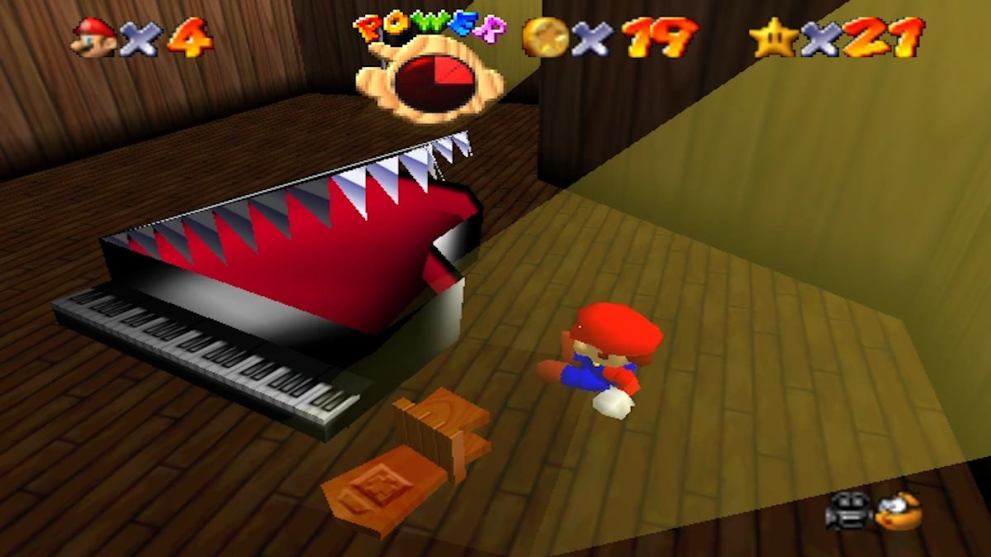
At a glance, the Big Boo’s Haunt level in Super Mario 64 is filled with the expected eerie elements, but one particular instrument stands out.
The seemingly innocuous Mad Piano appears as just another piece of room decor. However, when Mario naively draws close, it suddenly animates, snapping its sharp teeth in a horrifying surprise. This unexpected transformation, accompanied by jarring sound effects, manages to give players a genuine jump scare. To make it worse, it can’t even be defeated.
Within a game known for its cheerful and adventurous tone, this monstrous piano became an unforgettable moment of pure terror.
Facing ReDeads in Hyrule Castle Town (The Legend of Zelda: Ocarina of Time)

Few people can forget stepping into Hyrule seven years in the future in Ocarina of Time and seeing how the world has transformed into a gloomy wasteland. The first enemy to greet Link in this twisted version of Hyrule is the ReDead in Hyrule Castle Town, and they were downright petrifying.
Few enemies evoke the same level of dread as the ReDeads. These haunting, mummy-like figures stand frozen until disturbed, at which point they release a bone-chilling scream that paralyzes Link instantly. Their slow, staggering approach combined with their mournful, echoing moans ensures a heightened pulse in players.
Although the Zelda series has its share of creepy foes, the ReDeads, with their unsettling design and terrifying mechanics, are uniquely nightmarish.
Encountering the SA-X (Metroid Fusion)
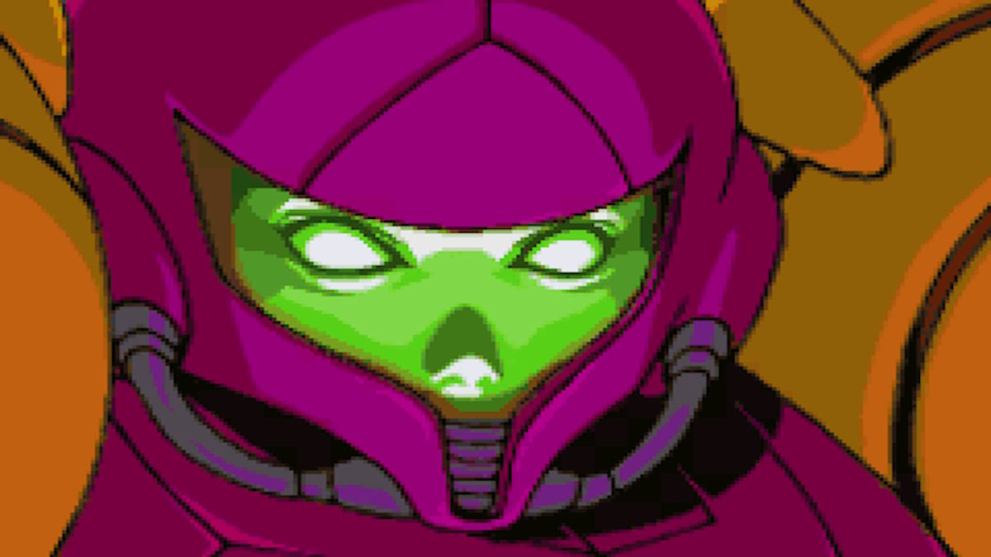
Metroid Fusion introduces a new kind of fear with SA-X, an alien parasite that assumes Samus’ form.
This doppelganger is not just an enemy, but also a relentless hunter, stalking Samus through the corridors of the research station. The knowledge that SA-X was born from Samus’s DNA, making it a mirror of her abilities, adds an additional layer of dread to each interaction. Its unpredictable nature, combined with its propensity to appear when least expected, keeps players perpetually on edge and ready to run.
The chilling ambiance of the game becomes even more pronounced with the echoing footsteps of SA-X and the cold, emotionless stare of its visor. Each encounter is a pulse-pounding game of cat and mouse, as players must evade an enemy that is essentially a more powerful version of themselves; all while unraveling the mysteries of the station and the origins of this formidable foe.
The Battle Against Giygas (Earthbound)
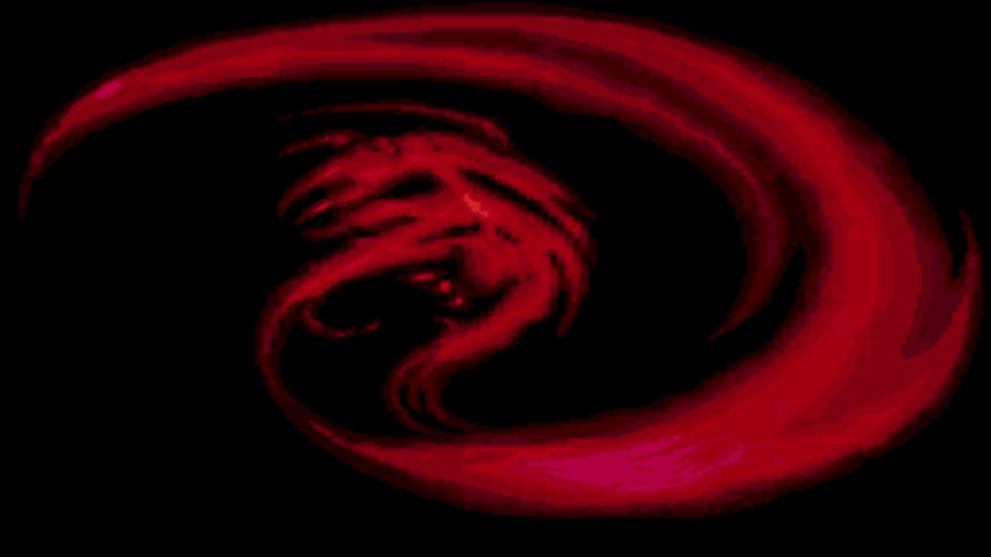
EarthBound does a fantastic job of juxtaposing its generally light-hearted tone with the deeply unsettling final confrontation against its final boss, Giygas.
Beyond being a formidable foe, Giygas’s design is abstract and disorienting, presenting a formless and swirling chaos. The Final Boss is an evil extraterrestrial who seeks to plunge the entirety of human existence into endless darkness. Rumors within the Earthbound fandom suggest that Giygas’ design and backstory were inspired by a traumatic childhood memory of the game’s creator, Shigesato Itoi, adding a layer of real-world unease to the character.
Its dialogue, disjointed and creepy, further enhances the nightmarish quality of the battle. Within the confines of this 16-bit game, Giygas manages to convey a sense of existential dread that few other game antagonists achieve, making it a confrontation players are unlikely to forget.
All the Sanity Effects (Eternal Darkness: Sanity’s Requiem)

Eternal Darkness: Sanity’s Requiem toys with players through its revolutionary “Sanity” mechanic. As your character’s sanity decreases, the game employs a series of tricks that break the fourth wall, including: fake console crashes, bugs appearing to crawl across the screen, erratic audio effects, or even pretending to erase game saves.
Such maneuvers are designed to genuinely unsettle the player, blurring the lines between the game and the player’s real-world experience. This bold approach breaks the fourth wall, pulling players into its unsettling narrative.
It’s a psychological terror, as players grapple with discerning game fiction from the distorted reality it presents, constantly questioning what’s genuine and what’s a mere fabrication of the game’s haunting design.
The Falling Moon (The Legend of Zelda: Majora’s Mask)
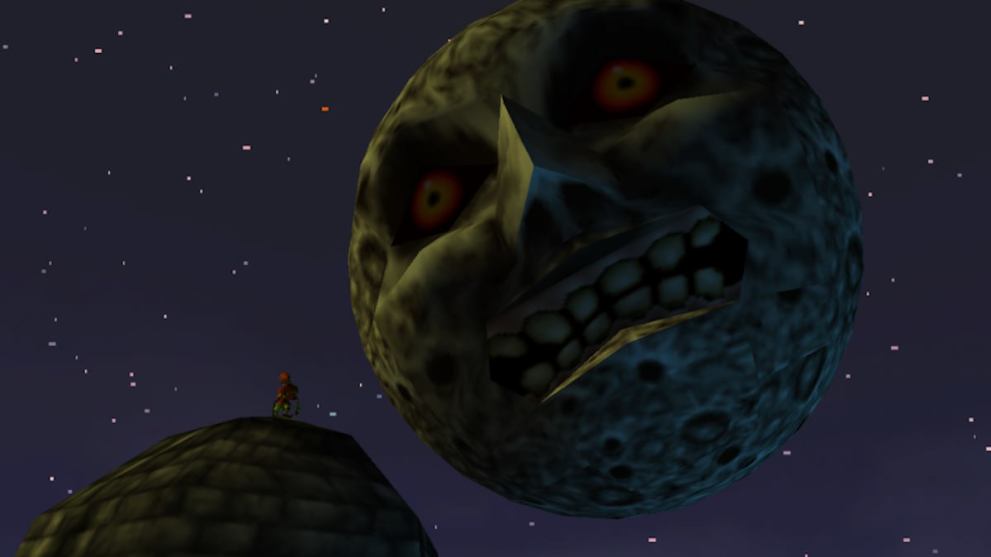
Termina in Majora’s Mask is overshadowed by a grim celestial body: the ever-looming, grotesque-faced moon. Its constant presence serves as an eerie reminder of the game’s ticking clock, driving home the urgency of Link’s quest.
As players navigate through the game’s various challenges and narratives, the weight of the moon’s descent is ever-present, making every decision and action feel consequential. With each passing in-game day, the moon descends closer to Clock Town, its facial features contorting into even more sinister expressions. Don’t even get us started on the traumatic experience of the moon actually falling and wiping out all of Termina.
This constant threat not only influences gameplay strategy, but also heightens the emotional investment as players become desperate to save the world and its inhabitants. This perpetual menace, coupled with the game’s melancholic themes, creates an atmosphere thick with impending doom and unease.
Running into Waterwraiths (Pikmin 2 and Pikmin 4)
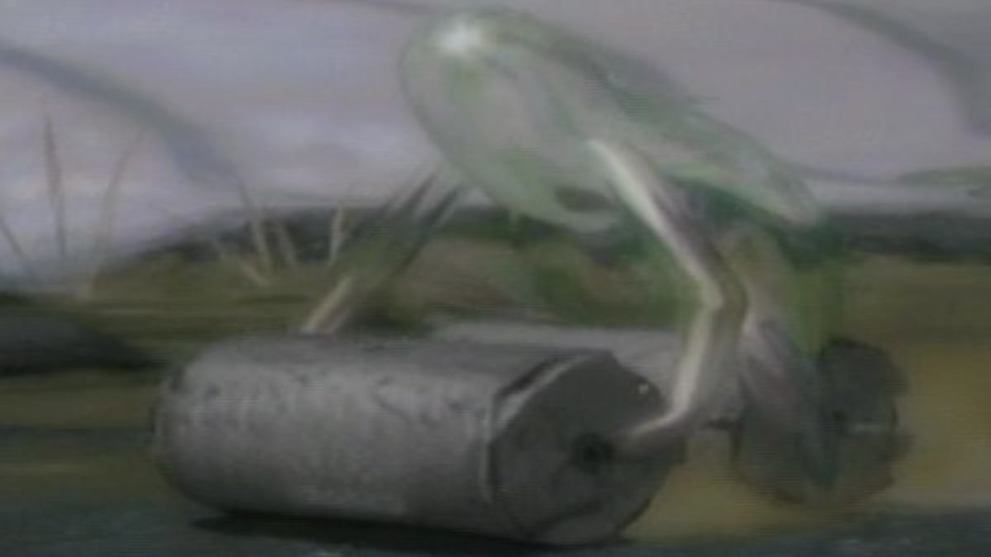
The Pikmin series, though centered on exploration and strategy, introduces an ethereal terror with the Waterwraiths.
Their initial invulnerability and relentless pursuit of the player’s squad create moments of panic and urgency in both Pikmin 2 and Pikmin 4. The haunting, almost mournful sounds that often accompany their approach serve as an ominous prelude, heightening the sense of impending doom. Emerging from misty environments, these enemies have a ghostly translucence too, making them stand out against the game’s natural backdrop.
Their otherworldly appearance and unpredictable behavior inject a chilling unpredictability into the game. The tension they introduce, especially during their unexpected appearances, adds a layer of survival horror to the otherwise serene gameplay.
Octo Expansion’s Blender Completion (Splatoon 2)
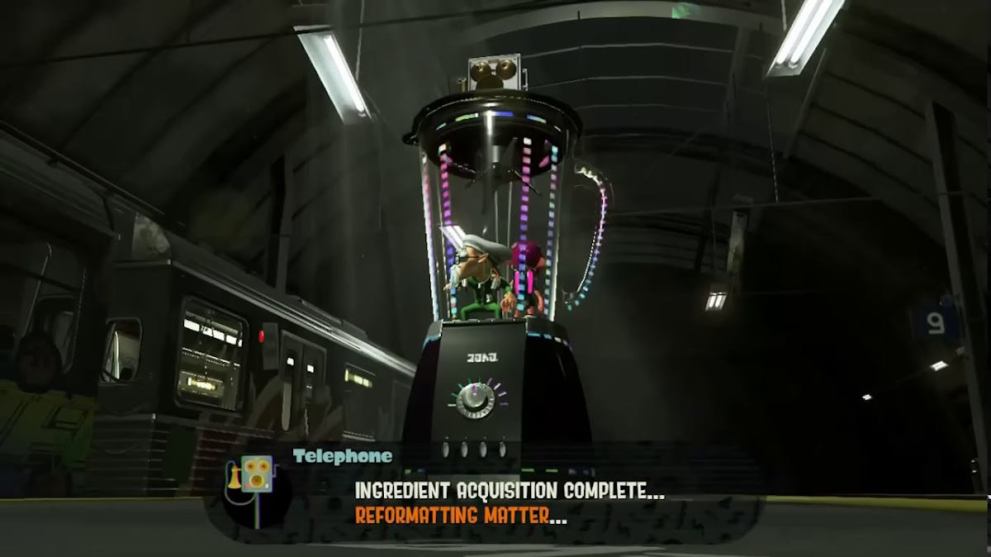
In Splatoon 2’s Octo Expansion, the player takes on the role of Agent 8, an Octoling with amnesia trying to navigate a series of underground test chambers. Guided by a mysterious Telephone, the player’s objective is to collect four items known as “thangs” to supposedly earn their freedom.
As the story progresses, the true intention of the Telephone becomes more sinister. After the player succeeds in gathering all four thangs, they combine to form a massive blender. The Telephone, revealing its malevolent intentions, tricks both Agent 8 and their ally, Captain Cuttlefish, into entering the device. Its aim? To blend the two into raw material for its own unknown purpose.
One of the most chilling aspects of this scene is when the Telephone addresses Agent 8 as Applicant 10,008. This implies a horrifying revelation: that before Agent 8, there were 10,007 other applicants who met a similar fate. The dark twist stands in stark contrast to the game’s vibrant and upbeat aesthetics, deepening the lore of the Splatoon universe and adding layers of complexity and maturity.

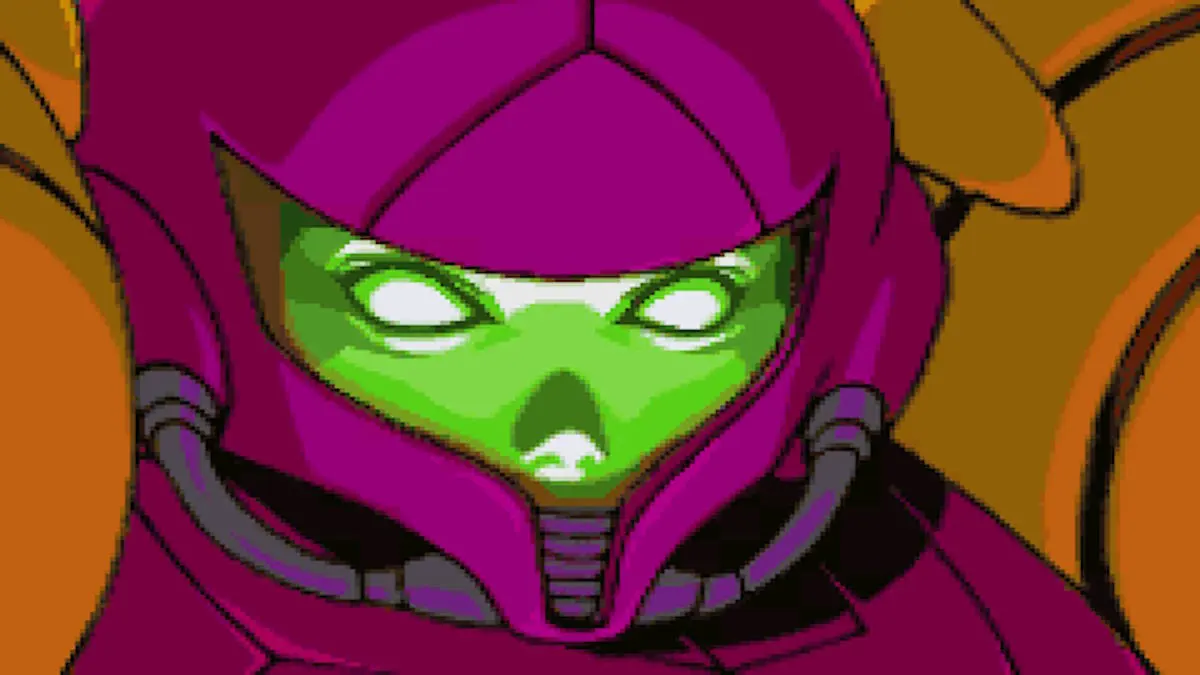



Published: Oct 19, 2023 11:00 am